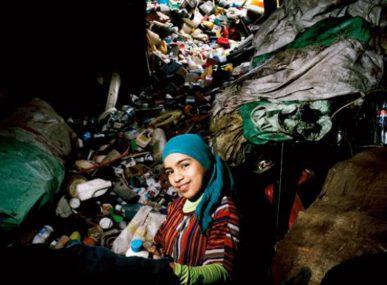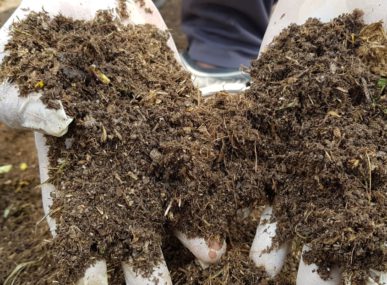Kamal wants Bekia to create meaningful change in Egyptian waste disposal, a serious problem facing the north African country. He claims that Egypt is one of the world’s leading generators of rubbish, racking up 100 million tons annually — an alarming figure that adds to mountains of trash that have already accumulated without solution. Kamal views everyday Egyptians as the answer, but they will need help. “We need to educate people more and more,” he said.
Bekia’s ingenious business model draws on Kamal’s training as a software engineer to locate valuable trash. Customers log into a special mobile app and get a certain amount of points, depending on how much recycling they have. They can then redeem their points for a wide array of products, which will then be delivered to their door. Alternatively, clients can donate points to charity, so that Bekia can bring essentials to needy communities.
The company profits from changing Egyptian attitudes towards recycling. Bekia does not have sufficient manpower to sift through unsorted rubbish at its headquarters. Under this model, customers kick-start the recycling process themselves, allowing Bekia to concentrate on providing raw materials for sale to factories.
Since Bekia’s launch in May 2017, the company has serviced 5,000 clients and completed around 7,000 orders. “We aim to be a market leader,” said Kamal.
Kamal still has plenty of room for growth, with plans to revamp Bekia’s online presence and attract more customers. The business would also benefit from more funding to expand its capacity for collecting and recycling waste. Yet by making recycling easy and profitable, Bekia is already well on the way to promoting a greener approach to what lurks in Cairo’s rubbish bins.
Learn more about Bekia through the website, Facebook and Instagram.
Photos courtesy of Bekia


